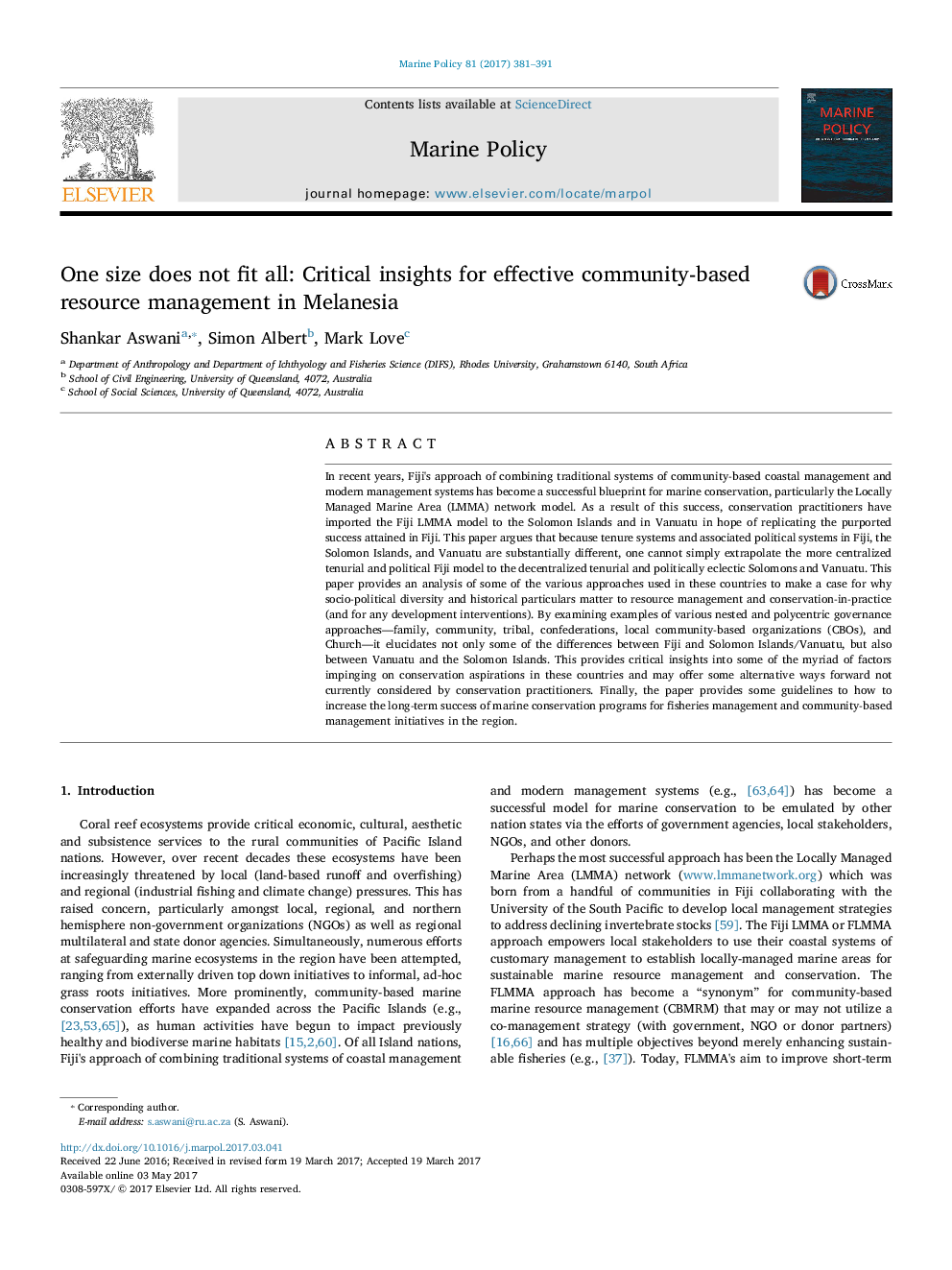ترجمه فارسی عنوان مقاله
یک اندازه مناسب نیست: بینش انتقادی برای مدیریت موثر منابع مبتنی بر جامعه در ملانزی
عنوان انگلیسی
One size does not fit all: Critical insights for effective community-based resource management in Melanesia
| کد مقاله | سال انتشار | تعداد صفحات مقاله انگلیسی |
|---|---|---|
| 103846 | 2017 | 11 صفحه PDF |
منبع

Publisher : Elsevier - Science Direct (الزویر - ساینس دایرکت)
Journal : Marine Policy, Volume 81, July 2017, Pages 381-391

